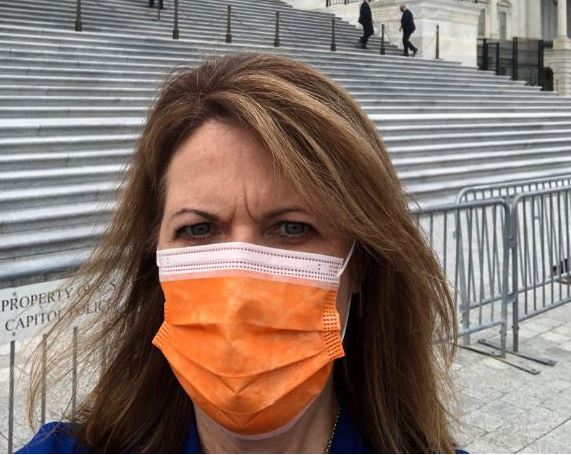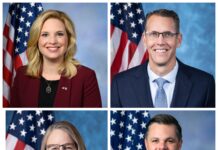Yesterday, Reps. Cindy Axne (IA-03), Katie Porter (CA-10), and Linda Sanchez (CA-38) sent a letter to urge the Internal Revenue Service (IRS) to issue guidance expanding dependent care assistance plans (DCAPs) to cover virtual child care.
DCAPs are an annual “use-it-or-lose it” account that allow working families to set aside pre-tax income to help cover the rising costs of child care.
Due to the COVID-19 pandemic, many child care facilities have had to close their doors or limit the number of children they serve – and others have moved online to continue offering care for working families. However, IRS guidance has not kept up with this shift to online child care.
While DCAPs cover in-person child care programming, they do not cover virtual programming. As a result, families are facing growing challenges affording child care and keeping their children engaged.
“With schools closed or only partially open, families face growing childcare costs, and many are struggling to find a way to keep kids engaged safely. Many programs have shifted to an online format, and it’s time that we join them, allowing working parents to use [DCAP] funds to pay for online services,” the members wrote. “Taking this commonsense step will give working parents the flexibility they need to support their children’s social, emotional, and intellectual wellbeing in a safe way during the pandemic.”
As a mother who has personally experienced the difficulty of paying for child care, Rep. Axne has championed efforts to help families better afford child care during the current public health emergency.
In May, Rep. Axne introduced the COVID-19 Dependent Care Flexible Spending Arrangement Rollover Act of 2020, legislation that would allow DCAPs to roll over from 2020 to 2021. Allowing DCAPs to roll over would protect families from losing out on hundreds or thousands of dollars of their hard-earned contributions. Axne’s proposal has garnered bipartisan support in both chambers of Congress.
Rep. Axne has consistently advocated for including her COVID-19 Dependent Care Flexible Spending Arrangement Rollover Act of 2020 upcoming government funding legislation, and, following her efforts, secured language allowing for DCAPs to roll over into 2021 as part of a legislative package to provide COVID-19 relief and fund the government.
The full text of today’s letter can be found below:
Dear Commissioner Rettig,
We write to you today to request additional flexibility for taxpayers who use Dependent Care Flexible Savings Accounts (FSAs) to pay for child care and related services. With schools closed or only partially open, families face growing childcare costs, and many are struggling to find a way to keep kids engaged safely. Many programs have shifted to an online format, and it’s time that we join them, allowing working parents to use FSA funds to pay for online services. Taking this commonsense step will give working parents the flexibility they need to support their children’s social, emotional, and intellectual wellbeing in a safe way during the pandemic.
Dependent Care FSAs, also known as Dependent Care Assistance Programs (DCAPs), allow working parents to use pretax dollars for child care, babysitting and summer camp. These FSAs help families afford the exorbitant prices of child care programs and services, which in turn support parents struggling to manage the demands of being a working parent. The Internal Revenue Service, under your leadership, has already taken important measures during the COVID-19 pandemic to provide families the flexibility needed to continue to continue using DCAPs during this difficult time. We want to thank you for the action you have already taken to alter mid-year elections for the program and to extend reimbursement periods.
The COVID-19 pandemic has forced child care programs and summer camps to move online, but unfortunately, at this time, FSA funds cannot be used for virtual programming. Legal experts believe that this does not require a statutory solution. At this time, it’s “unclear if virtual day care would fall under the definition of household and dependent care services that qualify for the benefits,” however simple guidance could provide this clarity. All the IRS needs to do is issue straightforward guidance initiating this change and providing further flexibilities for FSAs for the duration of the public health emergency.
It is our responsibility to support families as they fight for financial security during this difficult time. Working parents are struggling to balance child care and work, and taking away financial support for programs to care for and educate their children will only make this worse.6 We are excited that this issue has garnered bipartisan attention, and hope to join the chorus of voices urging you to make this change. Thank you for attention to this important issue, and we look forward to hearing from you.












